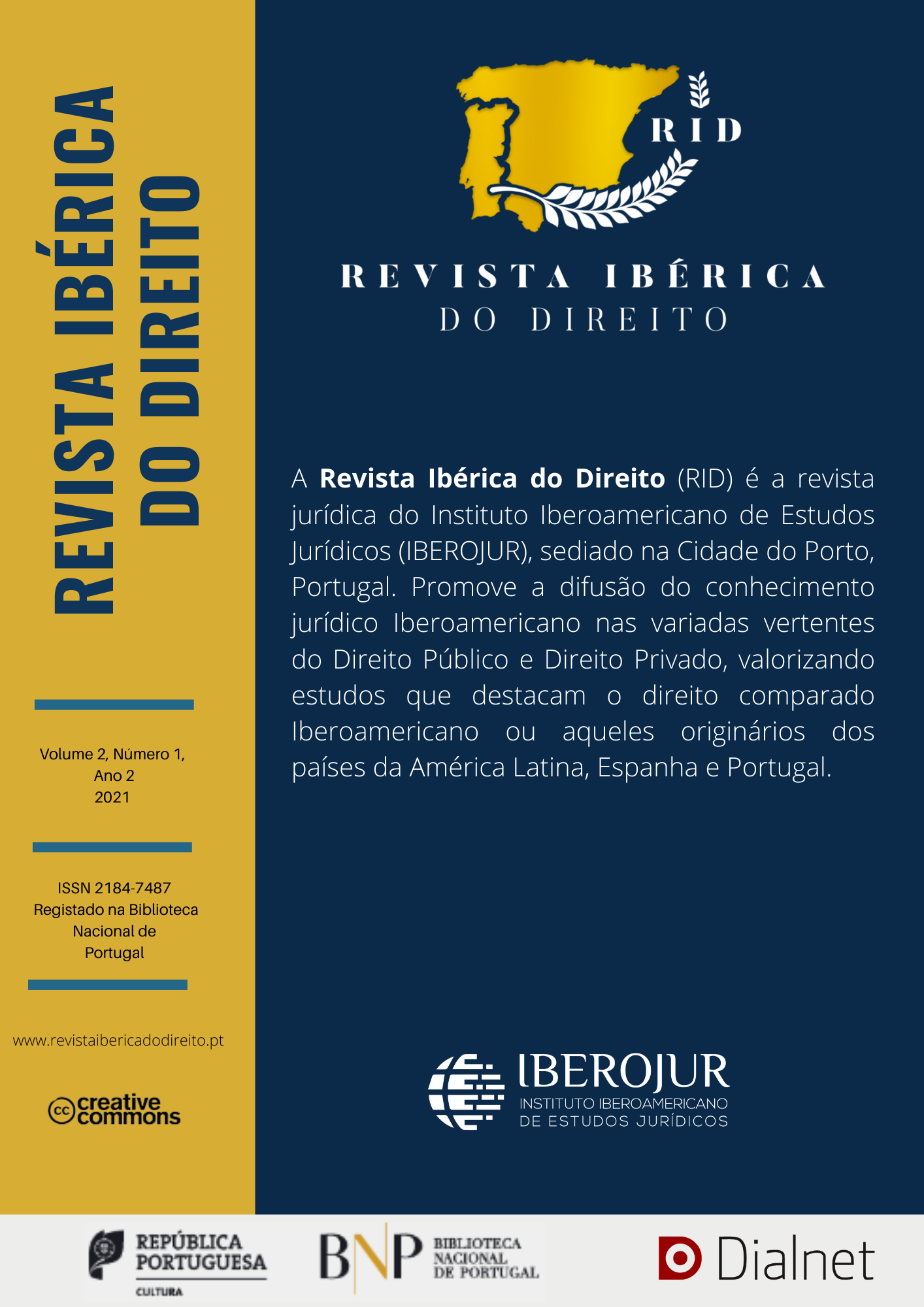Consent to the medical act in Brazil: between medical paternalism and the search for patient protection and doctors' responsibility
Keywords:
patient autonomy, free and informed consent, doctor / patient relationship, doctor's responsibilityAbstract
The main objective of this article is to analyze free and informed consent, from the standpoint of autonomy in the doctor / patient relationship, emphasizing the importance of providing clarifications and information on the performance of medical procedures and treatments. Regarding the patient's autonomy, it seeks to validate and reinforce free and informed consent in medical practice as a way to overcome medical paternalism and promote the rights of the patient. The requirements and conditions for obtaining free and informed consent are presented, as well as exceptional medical situations involving consent, such as organ transplantation, terminal patients and conscientious objection in the doctor/patient relationship, are presented.The sanctions for lack of or inadequate consent are discussed, addressing the civil liability of the doctor, clinics and hospitals, with a topic that contextualizes the consent of patients affected by Covid-19 and the doctor’s responsibility for off-label drugs prescription. As for the methodology, the work uses the deductive approach method, resorting to bibliographical and documentary research. The text presents an interdisciplinary emphasis, using several areas, notably Biodight, Bioethics, Constitutional Law and Civil Law. As a result, it is concluded that the consent term must be guided by ethical limits, presenting a clear language, bringing all the necessary information so that the patient is aware, without influence or coercion and that, in case of lack or insufficiency of information , it is necessary to consider the civil liability of the doctor, hospitals and clinics. It concludes with a reflection on the need to promote the exercise of patient autonomy, in order to build an ethics of solidarity and responsibility, which requires profound changes in the education and culture of our country.
References
ALDROVANDI, Andrea; BRAUNER, Maria Claudia Crespo. Exercício da autonomia sobre o corpo e a vida a partir das concepções de Kant e Stuart Mill: fundamentos para a definição de limites terapêuticos em testamento vital. Pensar, Fortaleza, v. 22, n. 2 p. 455-468.
BERNARD, Cristina. A responsabilidade civil do médico no Direito francês. In BRAUNER, Maria Claudia Crespo e PIERRE, Philippe (orgs.) Direitos humanos, saúde e medicina: uma perspectiva internacional. Rio Grande: Editora da FURG. 2013. P.17-28.
BRAUNER, Maria Claudia Crespo. BÖLTER, Serli Genz. O ser humano e o corpo: contribuições da bioética e do biodireito para a proteção dos direitos da personalidade In: CALGARO, Cleide. PEREIRA, Agostinho Oli Koppe (Org.). Direito ambiental e biodireito: da modernidade à pós-modernidade. Caxias do Sul: Educs, 2012, p. 185-207.
CASTRO, Carolina Fernandes de et al. Termo de consentimento livre e esclarecido na assistência à saúde. Revista Bioética, v. 28, n. 3, p. 522-530, 2020, p. 526.
DADALTO, Luciana. Distorções acerca do testamento vital no Brasil (ou o porquê é necessário falar sobre uma declaração prévia de vontade do paciente terminal). Revista de bioética y derecho, n. 28, p. 61-71, 2013, p. 63,65.
FREIRE de SÁ, maria de Fátima et al. A bioética da responsabilidade e a responsabilidade civil dos profissionais de saúde em tempos de pandemia. Revista Jurídica (0103-3506), v. 5, n. 62, 2020, p. 124.
FREIRE de SÁ, Maria de Fátima. Direito de morrer: eutanásia, suicídio assistido. Belo Horizonte: Del Rey, 2001. 195 p.
OLIVEIRA, V. L.; PIMENTEL, D. VIEIRA, M. J. O uso do termo de consentimento livre e esclarecido na prática médica. Revista Bioética 2010; 18(3): 705 – 24 p,706.
SARLET, Ingo Wolfgang. FIGUEIRERO, Mariana Filchtiner. O direito fundamental à proteção e promoção da saúde no Brasil: principais aspectos e problemas. In RÉ, Aluisio Iunes Monti Ruggeri (org.). Temas Aprofundados da Defensoria Pública, Volume 1, 2º edição, Editora JusPODVM, Pituba, Salvador- BA, 2014, p. 142,143.
SILVA, H, B. Beneficência e paternalismo médico. Rev. Bras. Saúde Matern. Infant., Recife, 10 (Supl. 2): S419-S425 dez., 2010
SOARES, Jussara Calmon Reis Souza; CAMARGO Jr., Kenneth Rochel. A autonomia do paciente no processo terapêutico como valor para a saúde. Interface. Comum, Saúde, Educ. v. 11, n.21, 2007. p. 65-78.
SOUSA J, ARAUJO M, MATOS J. Consentimento informado: panorama atual em Portugal. Rev Port Ortop Traum 23(1): 6-17, [Internet]. 2015, p. 9. Disponível:http://docplayer.com.br/2893537-Consentimento-informado-panorama-atual-em-portugal.html. Acessado em: 19 de maio de 2021.
TEPEDINO, Gustavo. Fundamentos do Direito Civil: Responsabilidade Civil. Gustavo Tepedino, Aline de Miranda Valverde Terra, Gisela Sampaio da Cruz Guedes – 2. ed. – Rio de Janeiro: Forense, 2021.
THOMASI, Tanise Zago; VARELLA, Marcelo Dias. A proteção integral dos órfãos terapêuticos: a vulnerabilidade da saúde das crianças no desenvolvimento de novos medicamentos. Revista da Faculdade Mineira de Direito│ V, v. 20, n. 40, p. 143.
VALÉSI, R. H.; GOZZO, D. Medicação aplicável à COVID-19, consentimento do paciente e responsabilidade civil do médico. Revista IBERC, v. 3, n. 2, p. 241-267, 10 ago. 2020, p. 264.
Downloads
Published
Issue
Section
License
Copyright (c) 2021 Revista Ibérica do Direito

This work is licensed under a Creative Commons Attribution-NonCommercial-NoDerivatives 4.0 International License.
Este trabalho está licenciado sob uma Licença Creative Commons Attribution 3.0


